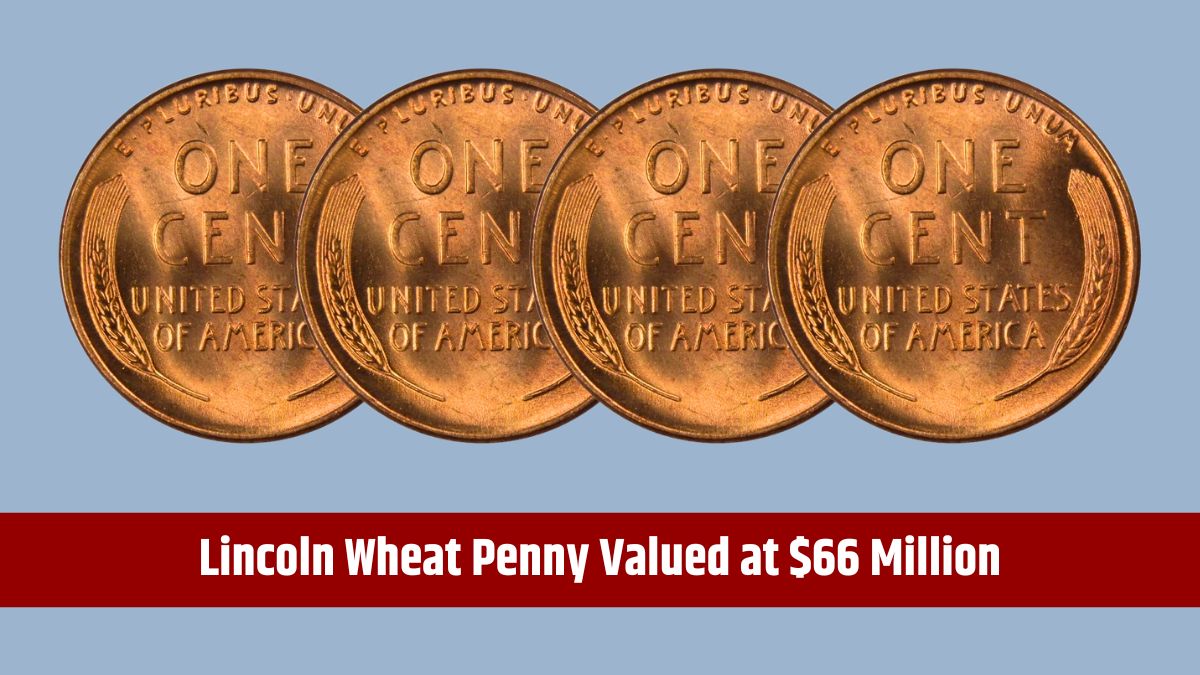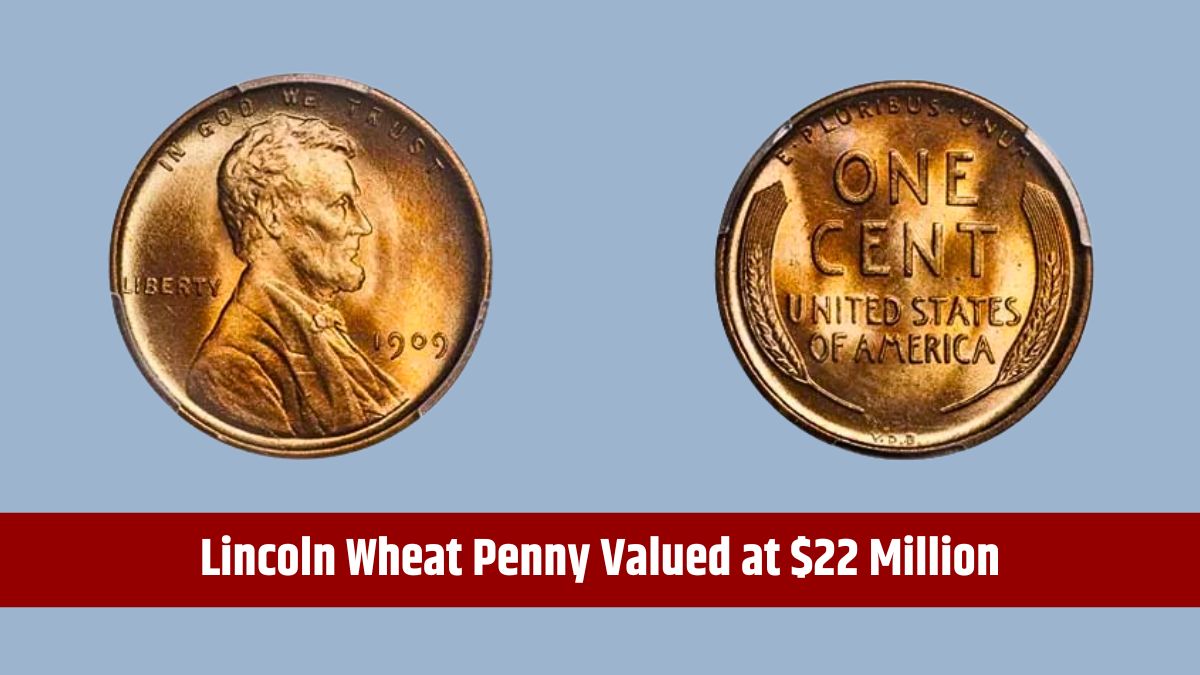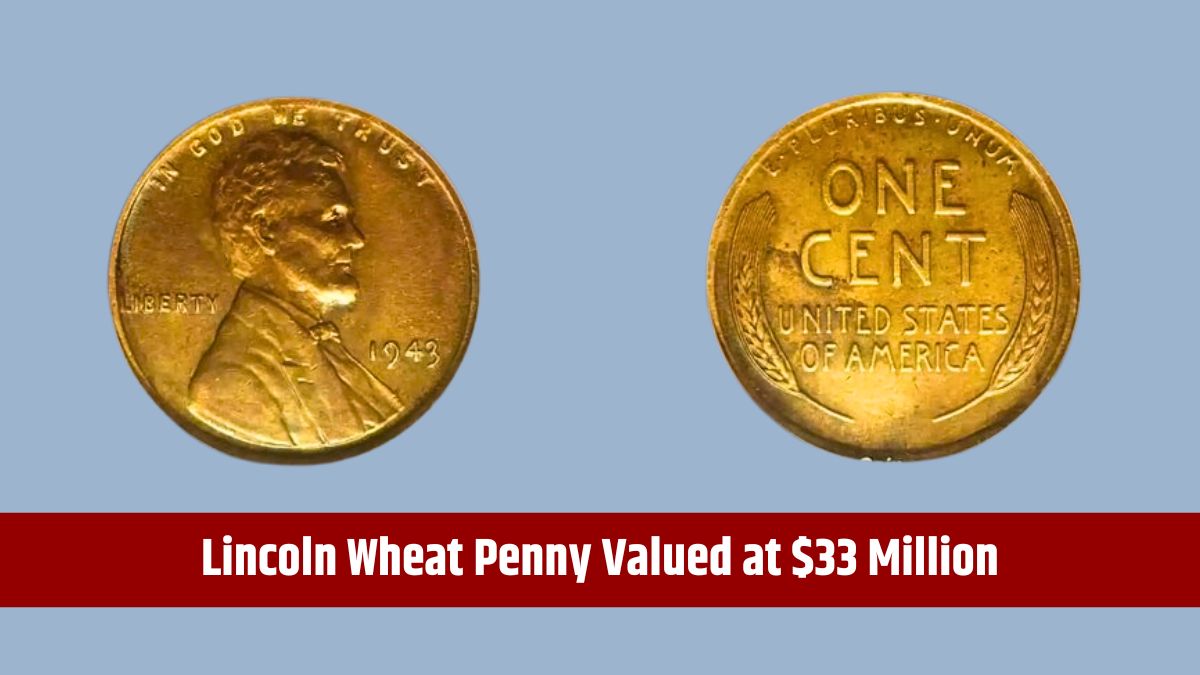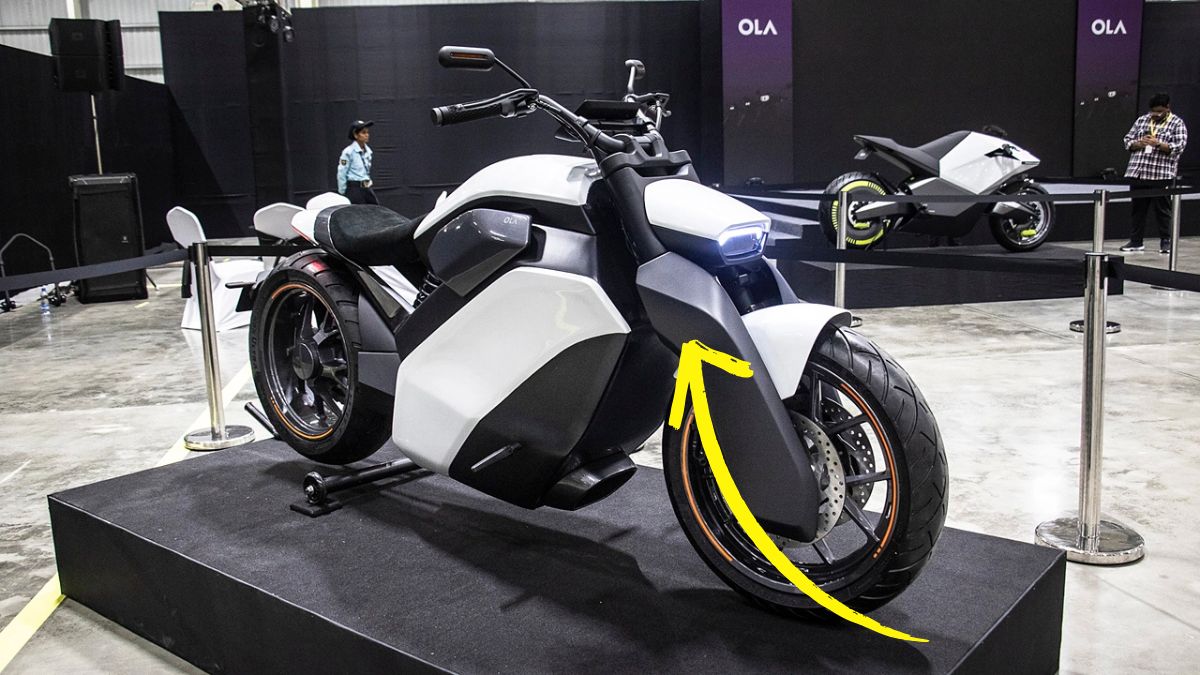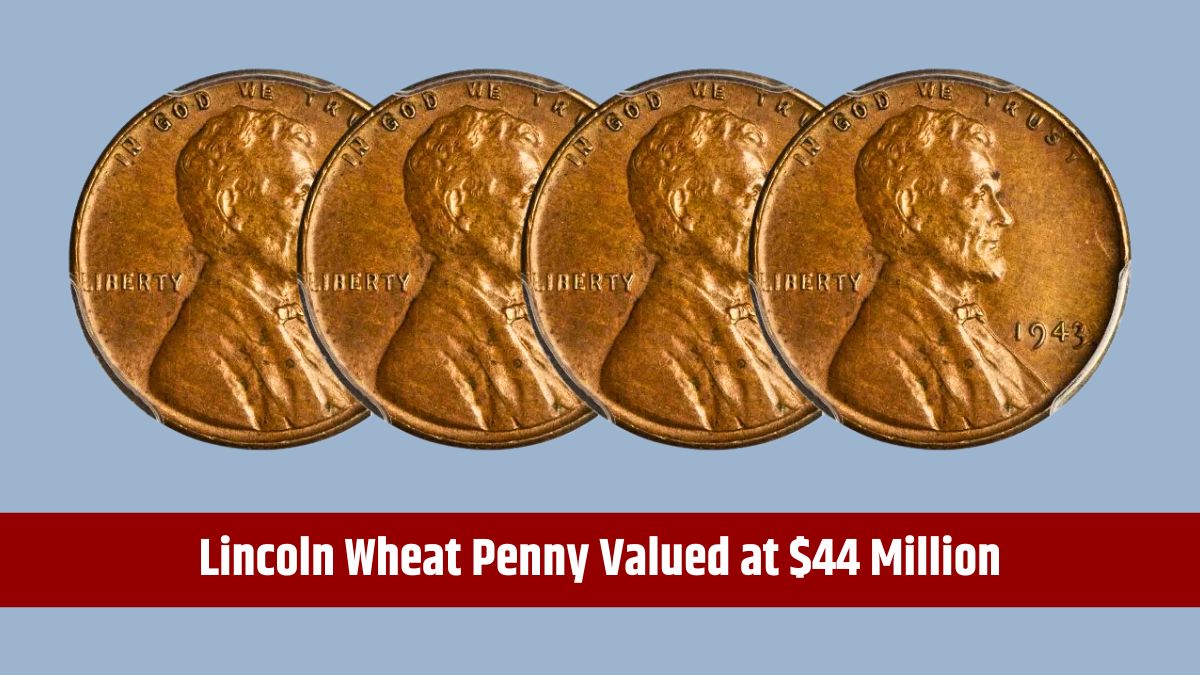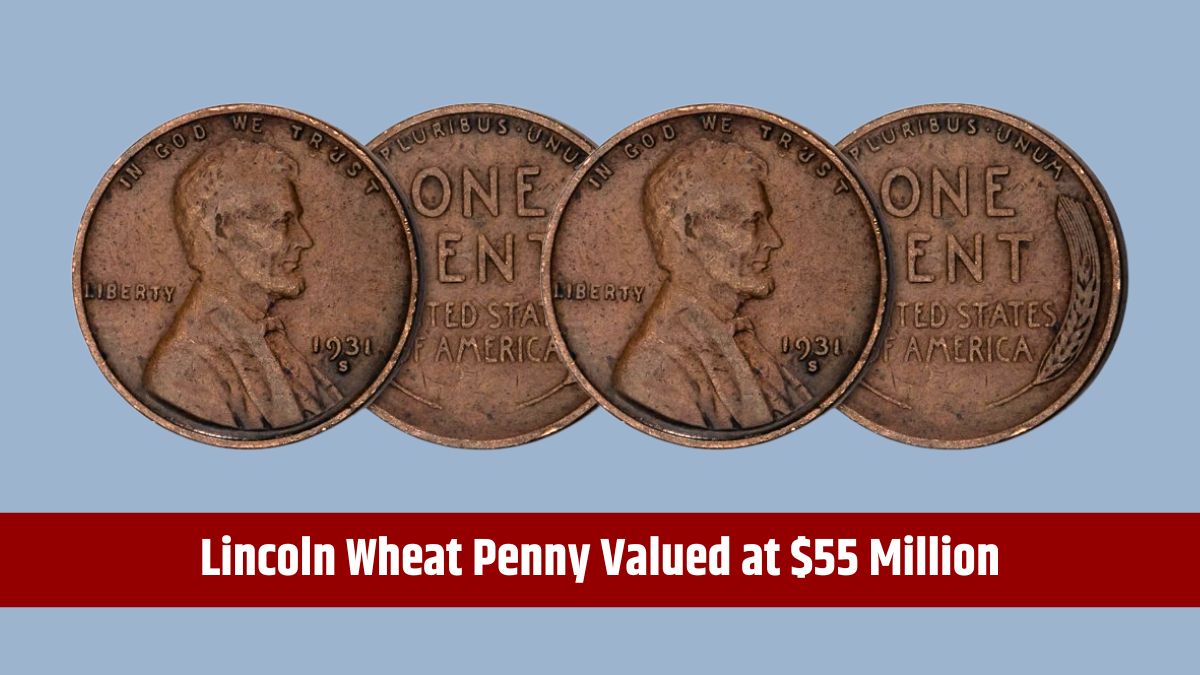Imagine the idea of holding a penny that could change your life forever. That’s exactly what makes the Lincoln Wheat Penny such a wild card in the world of coin collecting. Some of these seemingly ordinary coins are worth just one cent—but a few rare ones have been valued at jaw-dropping amounts, with one rumored to be worth $66 million. Even crazier? It might still be floating around in someone’s spare change.
Origins
The Lincoln Wheat Penny, also called the Wheat Cent, made its debut in 1909. It was created to celebrate the 100th birthday of President Abraham Lincoln and became the first U.S. coin to feature a real person. On the front, you’ll see Lincoln’s face, and on the back are two wheat stalks flanking the words “One Cent.” This design lasted until 1958 before switching over to the Lincoln Memorial version.
Composition
These pennies were made mostly of copper—95% to be exact—mixed with a little tin and zinc. The use of high-quality metal helped many of them survive for decades. But during wartime, especially in the 1940s, materials changed, leading to rare errors that are now worth a fortune.
Rarity
So, what makes some of these coins worth $66 million? It usually boils down to errors, rarity, and historical significance. Here are a few legendary examples:
1943 Copper Penny
In 1943, the U.S. Mint used zinc-coated steel instead of copper to save copper for the war effort. But a few copper blanks accidentally made it into the production line. These error coins are now extremely rare, with only a few known to exist. If one of these ends up in your pocket, you could be sitting on millions.
1909-S VDB
This version was minted in San Francisco in 1909 and includes the initials of the designer, Victor David Brenner (VDB), on the reverse. The coin had a super limited production—only around 484,000. Because of that small number and the historical value, it’s one of the most sought-after pennies in the world.
Mystery $66 Million Penny
While not officially confirmed, there are reports of a Lincoln Wheat Penny believed to be worth as much as $66 million. Some collectors say it’s due to a unique minting error combined with an ultra-rare composition and pristine condition. Whether it’s fact or legend, the mystery continues to fuel interest in these coins.
Identification
Think you’ve got a rare penny? Here’s how to spot the valuable ones:
| Feature | What to Look For |
|---|---|
| Year | 1909-S VDB, 1943 copper, 1955 doubled die |
| Material | Use a magnet—steel sticks, copper doesn’t |
| Mint Mark | “S” for San Francisco, “D” for Denver |
| Doubling | Letters and numbers may appear doubled |
Start by checking the year and look underneath it for a mint mark. A 1943 penny that doesn’t stick to a magnet might just be your golden ticket.
Circulation
Believe it or not, some of these rare coins could still be out there. People sometimes overlook old coins and use them without realizing their worth. That means it’s possible—though unlikely—you could find one in a handful of change or an old coin jar.
Selling
Got a coin you suspect might be worth big money? Here’s how to proceed:
- Authenticate: Contact professional services like PCGS or NGC.
- Research: Check coin values and past auction results.
- Marketplaces: Use online auctions, forums, or visit a coin dealer.
- Big Sales: For something extraordinary, go through a major auction house.
The Lincoln Wheat Penny is more than just a coin—it’s a piece of history with a wild side. From the mysterious $66 million version to the well-known 1943 copper error, these coins keep collectors on their toes. So next time you get a penny back in change, don’t ignore it. You could be holding onto a once-in-a-lifetime treasure.
FAQs
Why is a 1943 penny so valuable?
Because a few were mistakenly made from copper.
What does the S mean on a penny?
It means the coin was minted in San Francisco.
Is the $66 million penny real?
It’s rumored, but not officially confirmed.
Where is the VDB on the coin?
It’s on the reverse bottom center of early 1909 coins.
Can I find rare pennies in circulation?
Yes, but it’s extremely rare.
